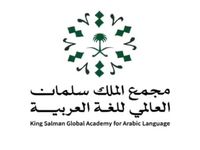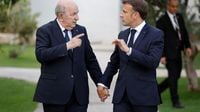The King Salman Global Academy for Arabic Language is hosting the Arabic Language Month program in Spain throughout April 2025. This initiative is designed to strengthen academic and educational ties between Saudi Arabia and international institutions, featuring an exhibition, seminars, training courses, linguistic proficiency tests, and student competitions, in partnership with Spanish universities and academic institutions.
The academy's expansion into Spain follows successful programs in countries such as Uzbekistan, Indonesia, China, India, France, Brazil, Thailand, and Malaysia, demonstrating its commitment to the global dissemination of the Arabic language.
Dr. Abdullah Al-Washmi, the secretary-general of the King Salman Global Academy for Arabic Language (KSGAAL), emphasized the importance of this program, stating, "This initiative reflects our ongoing commitment to enhancing the global presence of the Arabic language and fostering cultural exchange. We believe that language is a bridge that connects people and cultures."
Alongside the Spanish program, KSGAAL is also running a new initiative at Indiana University in the United States, aimed at training teachers of Arabic as a second language. This program, which will run until April 8, 2025, is the second phase of a project dedicated to improving the skills of Arabic language educators.
Dr. Al-Washmi noted that this training program is part of KSGAAL’s broader efforts to enhance teaching quality and introduce a standardized language assessment known as the Hamza test. He explained, "The Hamza test enhances the global and academic standing of the Arabic language by providing a standardized assessment model based on international criteria. It offers a reliable measure of language proficiency, enabling universities and academic institutions worldwide to rely on it for student admissions and assessing abilities."
The Hamza test is designed to facilitate international recognition of Arabic as a global language, allowing it to be measured according to the Common European Framework of Reference for Languages (CEFR) standards. This advancement promotes the Arabic language's inclusion in global academic and employment frameworks.
Dr. Al-Washmi elaborated on the significance of the Hamza test, stating, "The test boosts scientific research in the field of Arabic language through the analytical data derived from its results, which contribute to the development of more effective teaching curricula." He also highlighted that the academy's plan for Arabic language assessments is based on several key pillars, including legislation and accreditation to ensure official recognition and reliability, as well as outreach and sustainability to expand the test’s accessibility to the widest possible audience.
As part of the program at Indiana University, participants will engage in an introductory module on language assessments and the Hamza test, alongside a specialized training course for Arabic teachers of non-native speakers. A scientific seminar titled “Saudi Arabia’s Efforts in Teaching Arabic to Non-Native Speakers” will also be held, providing valuable insights into the methodologies employed in teaching Arabic.
Furthermore, the training program includes hands-on sessions of the Hamza test, designed to deepen participants' understanding of language assessment mechanisms and their role in evaluating learners’ language proficiency. This initiative aligns with KSGAAL’s strategy to empower the Arabic language and enhance its presence in international academic institutions.
Dr. Al-Washmi concluded by affirming the academy's commitment to innovation and development in Arabic language education, stating, "We are committed to innovation and development to improve assessment mechanisms and enhance the test-taker experience." The language assessment program at KSGAAL is advancing according to the established strategy, positioning Saudi Arabia, through the academy, as an international reference in Arabic language teaching, learning, and evaluation practices.
In summary, the King Salman Global Academy for Arabic Language is making significant strides in promoting the Arabic language on a global scale. Through initiatives like the Arabic Language Month in Spain and teacher training programs in the United States, the academy is not only enhancing the quality of Arabic language education but also fostering international collaboration and understanding.






